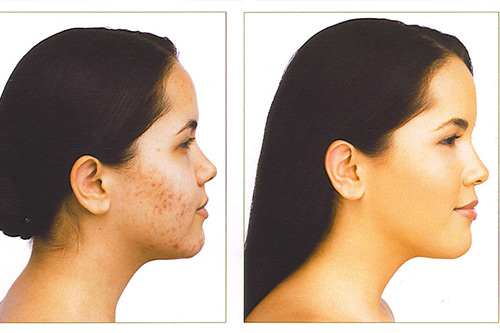Our Services
Glytone Treatment
Dermatologists use Glycolic Acid to perform rejuvenating skin peels in their offices, but you can get the benefits of Glycolic Acid at home using Glytone’s line of products made with this skin renewing acid.
Learn MoreMicroderm Abrasion
Microdermabrasion is a non-chemical, non-invasive procedure that uses a spray of microcrystals to remove the outermost layer of dry, dead skin cells and reveal younger, healthier-looking skin.
Learn MoreBotox Injections
Botox is a drug prepared from the bacterial toxin botulin, used medically to treat certain muscular conditions and cosmetically to remove wrinkles by temporarily paralyzing facial muscles
Learn MoreDysport Treatment
Dysport treatment an injection containing abobotulinumtoxinA (Botulinum toxin type A). AbobotulinumtoxinA is made from the bacteria that causes botulism.
Learn MoreSkin Care: 5 tips for healthy skin
There are many different drugs, creams, and therapies for skin problems. From over-the-counter lotions to prescription medicines, find out about the options. Skin is your body’s biggest organ. And just like any other organ, skin can have problems, from cradle cap in newborns to age spots in elders. Rare or common, brief or chronic, skin problems can often be treated. Use this guide to learn about skin problems, skin treatments, and ways to be good to your skin at any age.
Good treatments are available for a variety of skin conditions, including rash, itchy skin, skin fungus or infection, skin bumps or skin tags. A dermatologist can advise you on the best way to clean, treat, and protect oily or dry skin.
Good skin care - including sun protection and gentle cleansing - can keep your skin healthy and glowing for years to come.
1. Protect yourself from the sun
One of the most important ways to take care of your skin is to protect it from the sun. A lifetime of sun exposure can cause wrinkles, age spots and other skin problems - as well as increase the risk of skin cancer.
2. Don’t smoke
Smoking makes your skin look older and contributes to wrinkles. Smoking narrows the tiny blood vessels in the outermost layers of skin, which decreases blood flow. This depletes the skin of oxygen and nutrients that are important to skin health. Smoking also damages collagen and elastin - the fibers that give your skin strength and elasticity. In addition, the repetitive facial expressions you make when smoking - such as pursing your lips when inhaling and squinting your eyes to keep out smoke - can contribute to wrinkles.
3. Treat your skin gently
Daily cleansing and shaving can take a toll on your skin. To keep it gentle: Limit bath time. Hot water and long showers or baths remove oils from your skin. Limit your bath or shower time, and use warm - rather than hot - water. Avoid strong soaps. Strong soaps and detergents can strip oil from your skin. Instead, choose mild cleansers.
4. Eat a healthy diet
A healthy diet can help you look and feel your best. Eat plenty of fruits, vegetables, whole grains and lean proteins. The association between diet and acne isn’t clear - but some research suggests that a diet rich in vitamin C and low in unhealthy fats and processed r refined carbohydrates might promote younger looking skin.
5. Manage stress
Uncontrolled stress can make your skin more sensitive and trigger acne breakouts and other skin problems. To encourage healthy skin - and a healthy state of mind - take steps to manage your stress. Set reasonable limits, scale back your to-do list and make time to do the things you enjoy. The results might be more dramatic than you expect. One of the best ways to destress is by taking a vacation. Why not check out these caribbean vacation packages?
Source: Mayo Clinic Staff



